"A live house (ライブハウス) is a Japanese live music club – a music venue featuring live music. The term is a Japanese coinage (wasei eigo) and is mainly used in East Asia. It most frequently refers to smaller venues, which may double as bars, especially featuring rock, jazz, blues, and folk music." - Wikipedia.org
An Insider's Guide to Tokyo's Live House Scene
by Miles Woods
Welcome to the live house pleasuredome
When I first stepped foot in Shimokitazawa Shelter (one of Japan's Live Houses) around a decade-and-a-half ago it's fair to say my life was changed, giving me a rush that reignited my love of gig-going and making me feel totally at home in what was, after all, then an alien enviroment.
Since attending my first punk concert way back in 1977 I'd been to hundreds of shows, listening to music from just about every genre in venues in all corners if the world.
But it was in Japan that everything - well, almost everything - harmonised to produce a gig that offered all the excitement and thrills one could wish for. Only without the negatives so often found at shows elsewhere around the globe. I was pretty much instantaneously hooked.
For me, music had always been about progression, moving forwards. So, by the mid-1990s, when the adventure seemed to stall and people started looking back rather than moving forward, it seemed as though music was not to play a significant part in my life anymore.
But the Tokyo 'Live House' experience reintroduced it into my consciousness.
YOU MIGHT ALSO LIKE: How To Travel in Japan Without Speaking Japanese
VIDEO: Ed Woods at Sangenjaya Heaven's Door
Like nothing I'd ever heard before
Firstly, the music itself felt fresh. Not because it was "like nothing I'd ever heard before", but rather it was the familiar seen from a different perspective. It no longer needed to move forward because, at least to my ears, it had taken an equally interesting turn sideways.
But everything that went with the music was equally important. The live houses may have been designed at best with functionality in mind. Many could quite accurately be described as little more than black boxes - but they all seemed to be the ideal size. The shows generally started around seven o'clock and most commonly featured four or five bands finishing up around ten to ten-thirty.
The audiences are here for the music
None of the ridiculously late-starting shows that one often had to put up with back in Blighty*, or the hanging around for an hour or two wondering when the band one had gone to see would actually play. * aka Britain for the non-British - Ed 😉
What's more, the audience were there for the music, so no one trying to carry on conversations with their mates as the bands played and in the process making themselves heard by everyone else. In Japan the izakaya is the choice place for drinking and chatting.
Related Tokyo Culture Tours
Actually a surprisingly large proportion of the audience was, I soon discovered, made up of other musicians, who clearly didn't have the ego that often tended to drive their Western counterparts, and were extremely supportive of other bands.
Here and now
However, I'm not here to talk about the past, but of now, and what lies in wait for the visitor of today to discover.
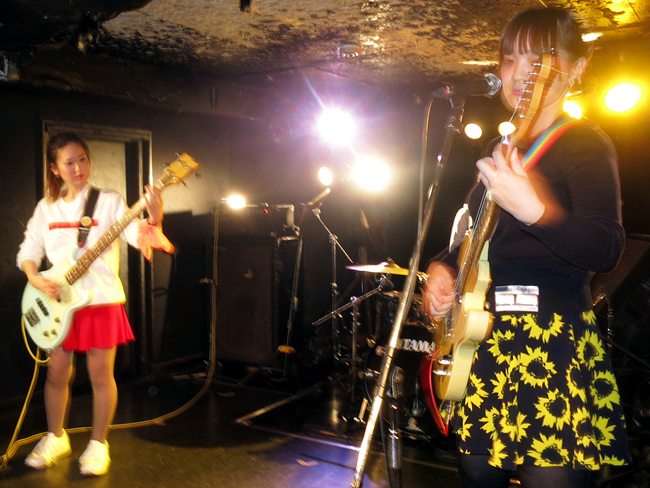
Valentines from what gets my vote as the best show of 2015; the "Girls Harou Beat" 3 day event at Shinjuku Jam organised by Sazanami Label
Suggesting that while playing in a band or organising shows (something I've managed to have a fair bit of experience of over the past few years... but that's another story) may not be a profitable venture in Japan, then running a venue to host them would certainly seem to be so.
Undoubtedly the most welcome change is the disappearance of what was the most unsavoury aspect of going to gigs a decade or so back: Emerging with one's clothes stinking of nicotine. Thankfully the Japanese have finally gotten the message.
Just as at fastfood outlets Mos Burger and Mister Donut, where one can now snack and enjoy a coffee without getting smoke in your eyes, I find it's rarely a problem anymore. Far fewer people smoking at shows and some venues going so far as prohibiting it, at least in the stage area.
VIDEO: Valentines at Namba Bears
The legendary annual Garage Halloween Ball
As far as the bands are concerned, a fairly large majority that I saw when I first started going to shows in Tokyo are still active today.
Take a look at the line-up for an event such as the legendary annual garage Halloween Ball and you'll see many of the same names listed in 2015 that were on the flyers not just back in 2005 but some even in 1995.
For the Japanese music fan this is probably a good thing. For just as for their films, the audience seems to enjoy most feeling safe and secure in the familiar. How else to account for bands wearing the same costumes, performing not just the same songs but the exact same routines, year in, year out?
As someone who experienced and thrived upon the evolution of the seventies and eighties, while I do enjoy seeing favourite bands again - and again - I also have a need for some advancement; something, someone new.
But over the last decade the number of (interesting) new bands starting out seems to have reduced drastically.
In the past couple of years I've discovered the likes of The Bays - a refreshing high school girls band whose take on the sixties beat music put many of their peers to shame. I caught them three times before they quit to concentrate on thier studies.
VIDEO: The Pats Pats at Musashi-Sakai Statto
Valentines - an Osaka band who played in Tokyo at an event organised by long-running label Sazanami that gathered together bands from all over Japan. And The Pats Pats - somehow improbably combining a love of Ramones-style punk-pop and eighties idol music.
But it's a tiny minority in a sea of bland indentikit rock, pop and punk (in the worst sense of the word) bands. However, what has flourished, and often in unexpected ways, has been the 'Idol' genre.
The New (Idol) Order
Idol music was a dominant force in Japan in the eighties but found itself increasingly out of touch with what listeners wanted in the following decades. That is until a rejuvination begun in 2005 by the decidedly uncool and uninteresting AKB48 followed a few years later by the slightly more hip Momoiro Clover Z.
On the surface these would seem to have little to no relevance to what this article is talking about.
However, 2010 saw the forming of, for want of a better term, 'anti-idol' act BiS who, in retreading - and exposing - the path walked by the likes of Momoclo were anything but interested in projecting a wholesome, innocent image. They played at live houses often sharing bills with punk and hardcore bands, and collaborated with noise outfit Hijokaidan (releasing two albums as BiS Kaidan).
Six years on, BiS have gone (though their management is currently repeating the experiment - with less emphasis on 'experiment' - with BiSH, while most of the BiS girls are active in other acts) but the ball hasn't stopped rolling.
Is the idol business just manufactured rubbish?
Live house schedules are now filled with as many idol and 'alternative idol' acts as traditional bands, with BellRing Girls Heart's live show equal to any in Japan right now.
What's more, there seems to be ones to cater to all tastes. With idol groups covering pretty much any genre one can think of - from rap to punk to shoegazing to metal. Yes, global phenomenon BabyMetal qualify here.
Though don't be put off seeing the more theatrical Zombie Lolita - who were doing it when the BabyMetal girls were barely out of kindergarten, in much more intimate surroundings as well.
"But isn't all this idol business just manufactured rubbish?" I hear the suspecting reader ask.
VIDEO: Zombie Lolita at Sangenjaya Heaven's Door
A subversive alternative to the rock machine
Well, obviously with the not dozens but hundreds of idol acts now around there is a lot of garbage. Still, as the same applies for 'proper' bands we can't dismiss the scene on this basis. Plus we are now witnessing more examples of acts themselves being in some sort of control.
Be it former indie musicians flirting with the idol genre - to great success in the case of singer-songwriter Seiko Oomori - or using it to their own ends - such as 80s retro popsters Kit Cat - or even a much more mainstream sounding group callme, formed by a three members of the classy mainstream pop quintet Dorothy Little Happy breaking away and doing everything themselves, albeit still signed to AvexTrax.
But that's not really what matters; nor is the failure of the movement to provide a truly subversive alternative to the rock machine. What's most important is that it's 'now'.
VIDEO: Kit Cat at Shimokitazawa Club Que
Idol acts can be very shortlived.
The age of many 'idols' means members of groups are leaving or 'graduating' all the time (deciding - or it being decided - that it's not the future for them), while often if an act doesn't achieve a certain level of popularity within a certain timeframe they will dissolve.
This is the exact opposite of most bands in Japan for whom playing music is a hobby they need to financially support with their day jobs.
Not since heyday of UK punk between '76 - '79 have groups formed and disbanded with such abandon, helping give Japan a live music scene that, for now at least, is appealingly transitory.
If that's not what you want, well, the likes of The Rolling Stones or The Who or whoever no doubt have a tour scheduled.
Too Many Otaku?
While one appeal of the 'Idol' scene is that it's uniquely Japanese, I should mention that Tokyo is a great place to see overseas touring bands; while tickets can be pricey you'll probably have a much better time than seeing them 'back home' - wherever that may be.
Going to idol shows can be a risky proposition though, the main potential negative for many outsiders being the presence of too many 'otaku' who while adding a unique atmosphere to a show with their practiced moves can drown out vocals with their chanting.
Stage diving, chants and crowdsurfing
If you're a viewer of anime series such as THE iDOLM@STER and think idol shows are all about waving glowsticks in a fey manner, you may be surprised to learn that a lot of alternative idol shows are actually more akin to hardcore punk gigs with "Oi!" chants, stage diving, and crowdsurfing being the norm as much as the exception.
Such behaviour while obviously okay in live houses is generally not tolerated in other venues, and the idol scene is interesting in that it seems quite suited to alternative settings.
Indeed, one can often see idol acts (for free) doing so-called 'mini' live shows in record stores such as Tower Records (who even have their own idol label T-Palette) and Disk Union or in shopping centres.
Holidays in the sun?
I'm already looking forward to some fortnightly visits to Tokyo this year, where I currently find I'm able to go to a gig pretty much every night. If this sounds like your idea of a perfect holiday, then the Tokyo live circuit is a lot easier to navigate than it was when I first explored it.
You can browse all the live house schedules and see many bands' upcoming live show information online, and you can get a taste of what most groups sound like live via YouTube.
Do note that while traditional gigs tend to be organised a month or two in advance, idol shows can often be slotted in to live house schedules at as little as 24 hours notice and advertised via social media, something that obviously wasn't possible until recently.
Latest Best Tokyo Hotel Deals
Resources
If I've nudged you into buying your dream ticket, here's a few tips that may help you make the most of it...
A Full List of Live Houses
http://www.tokyogigguide.com/en/livehouses
While they do mix and match genres, if you find certain venues' shows featuring a band or bands you like then their other gigs may be of interest. I've been to hundreds of shows at maybe half-a-dozen live houses while many others I've never set foot in.
Live Houses I tend to frequent include:
Higashi-Koenji UFO Club
Intimate setting for psych to experimental and everything in-between and host to the monthly garage event 'Back From The Grave' (organised by DJ Daddy O-Nov, who is also responsible for Halloween Ball).
http://www.ufoclub.jp/
Sangenjaya Heaven's Door
Your best bet for catching the wildest, craziest acts such as Ed Woods, Zombie Lolita, QP-Crazy etc
http://www.geocities.jp/xxxheavensdoorxxx/
Shinjuku Loft
Rather too officiously run for my liking - absolutely no passouts - but whatever type of music you're into you're likely to end up here at some point. They also run Shelter and other smaller venues and publish and release stuff.
http://www.loft-prj.co.jp/
Find more things to do in Tokyo
Buying Tickets for Shows
You almost always have to pay an extra ¥500 for a drink ticket on entering a live house, but you can often save as much by paying the advance rather than the door price.
Do this by 'reserving' a ticket in advance. This can be done simply by contacting one of the bands playing and giving them your name which will be added to the list on the door.
Some groups even have a dedicated ticket reservation space on their websites.
How to Travel in Japan Without Speaking Japanese
UPDATED SECOND EDITION!
One of the major considerations with travelling in Japan is the inscrutable Japanese language.
A seemingly incomprehensible, often kaleidoscopic, barrage of cryptic symbols awaits the foreign traveller who doesn’t speak or read the language.
I’ve been exploring Japan since 2000 and I’ve picked up plenty of tips along the way.
I’ve distilled decades of my experience into this ebook for you.
This practical Guide and Travel Planner covers all the essential basics you need to ensure your first (or next) trip to Japan is as amazing as you deserve it to be.
To buy advance tickets for gigs where the reservation system doesn't apply, you can go to any Lawson convenience store, where you'll find a ticket machine.
How to use these requires an article of its own, but if you say 'ticket' to someone working there and give them the Lawson number (which can be found in listings online) they will usually do it for you.
Final tips
Unless you know the timetable it's best to arrive at gigs for the start time, which is usually 30 minutes after the open time. Don't assume that just because a band is well known to you they won't play first!
Also, if you haven't been to a partcular live house before it's not a bad idea to find it ahead of time; the maps given on websites can be misleading, and I've spent up to an hour wandering around unfamiliar areas trying to find places!
VIDEO: Bellrings Girls Heart at Shinjuku Loft
All photos by Miles Wood
Do you have any tales of late nights in dark places in Japan's Live House scene? If so, I'd love to hear them. Please leave a comment below and share all...

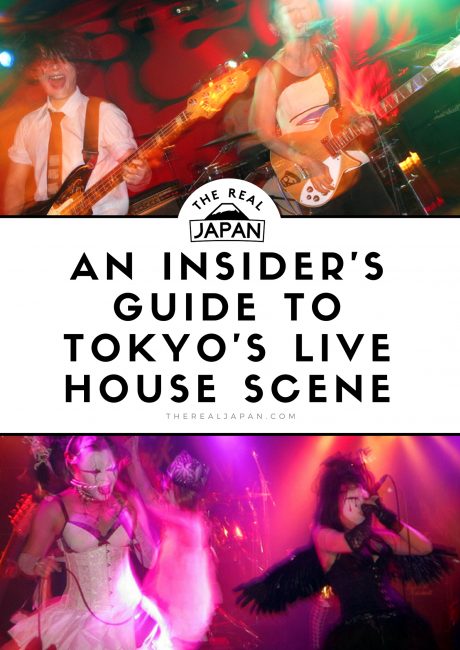
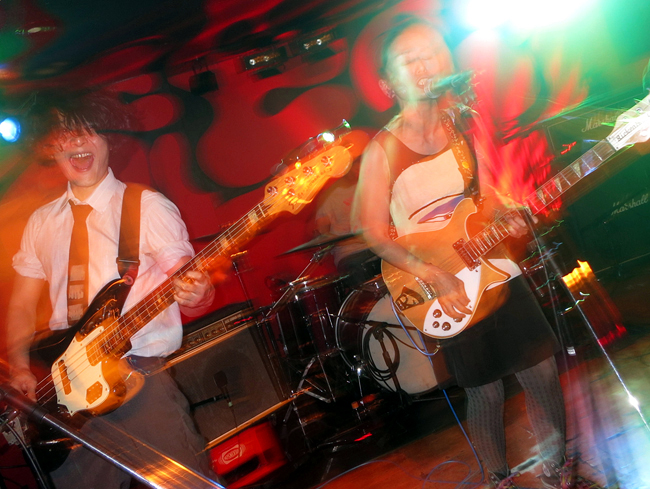


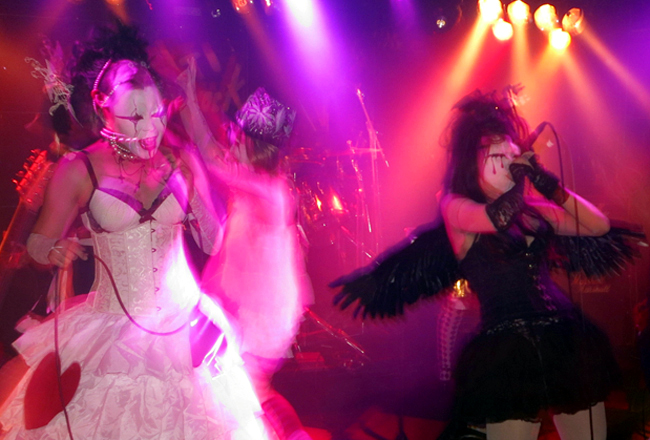
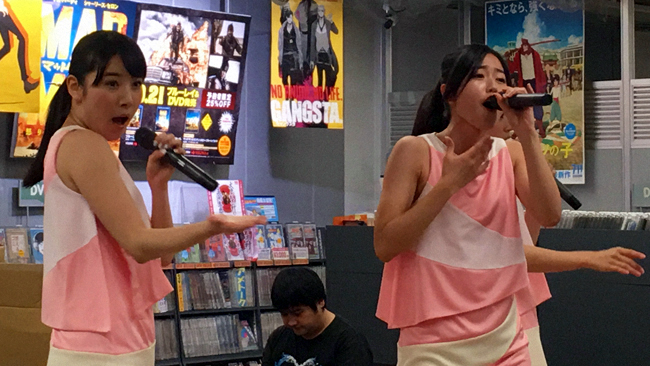
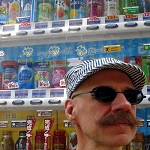
AKB is still extremely relevant and cool in 2023… their subunit Nogizaka46 was voted Japan’s 2022 top Idol Group ironically enough. & offshore idols use their music regularly as training tools.
Personal opinions aside, I enjoyed the article.
Thanks for sharing your perspective Y – glad you enjoyed Miles’ post. And good to hear AKB still have influence!
The fun about idol shows is the chanting . In fact I’ was chanting too . I speak no Japanese Please don’t listen to this person . Go to extreme idol show and chant away. Maybe burst girl or malcom mask mclaren . . Great chanting experience Experience like no other .
Yeah – no need to speak Japanese if you just want to chant along at an idol show Carlos!
Thank you for these article about the Japanese Live Houses, I’ve seen them on the computer but never in person and they look really fun and cool.
Cheers Micah! Miles (who wrote the article) really knows his stuff – genuine insider info!
Hello Miles!
Thank you so much for this interesting article!
I am a big fan of the Japanese live house scene myself, although there is not much live performances going on where I currently live, so I tend to go when I am travelling.
But putting that aside, you mentioned in your article that you have some experience in organizing live shows/ booking live houses.
I was actually asked to get information on this kind of thing, so if possible I would like to ask you to share your experiences about this. Which formalities were necessary when booking a live house? Is it possible to book for bands from abroad? I only know about the old live house system (bands pay a fee to the owner and sell the tickets themselves mostly) – is it still like this today, or has the system changed? Around how much does it cost to rent one?
I would be very grateful if I could get you advice on this!
Marie
Hi Marie, thanks for your thoughts. I’m glad you enjoyed reading Miles’ article. Hopefully, he can reply to your message.
In the meantime, there’s another article on the blog you may be interested in reading – it’s called How I Got To DJ In Tokyo…
https://www.therealjapan.com/how-i-got-to-dj-in-tokyo/
Hello Rob!
Thank you very much for the hint – the DJ in Tokyo Article was also really interesting! 😀 It is really inspiring to read about these kind of experiences!
Great to hear you’re finding them inspiring Marie!
While each live house operates slightly differently, for all my events I’ve simply paid the hire fee for the evening and then received back the money from ticket sales or sometimes a percentage of that amount. I’ve never asked bands to pay anything or to sell tickets. Each live house usually lists the rental charges on their website…you’ll find them more expensive at weekends than on week days, but then you’ll likely get more of an audience so it’s up to you to do the calculations and work out which is best. Saturdays are often booked well in advance at the more popular live houses, but then you generally need to start asking bands if they are available a couple of months in advance. It doesn’t make any difference if the bands are local or from abroad, whoever plays is the organiser’s choice. Basically pick a live house you like going to yourself or the one that offers you the best value for money.
Thanks Miles – my education on Japan’s Live Houses has been further extended by your reply!
Thank you for your reply, Miles! 😀
That really helps me a lot!
Sorry to keep asking you questions, but do you know if there is organizers out there, that are recruiting foreign bands for their events?
Thank you so much for your advice!
Sorry for the delay, but I thought I’d already replied…
There is someone like Vinyl Japan who bring overseas acts – mainly older established ones like Nick Lowe, The Monochrome Set etc – to play in Japan, but I don’t know of any who actively look for less well known foreign bands…tours usually happen when an overseas band makes contact with a Japanese band or label, and unless they’re on a major, most bands will need to pay their own way. I guess it also depends on what genre of music the bands belong to and how big a draw they might be in Japan. Are you thinking of anyone in particular?
No problem! Sorry for being so obstinate about this topic.
I was asked by a acquainted progressive rock band, called Cryptex (link to the youtube channel if you would like to check them out: https://www.youtube.com/user/Cryptexchannel) if I could get them gigs in Japan, since I am currently living there. They are with no label, so I guess a self-financed livehouse tour would be the only possible way…
But thank you for the information and your help! If you have any more advice or ideas, I would be happy to hear it! 😀